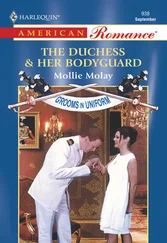Despite all they’d seen, two of my men vomited.
We watched them make the Malays dig a grave for Carlaw. We watched them all the time for three days, but on the morning the sub was due, the barges pulled away, leaving a section of soldiers and a few Malay Heiho, but taking the Malay fishermen with them. The Englishman Filmer was very troubled and came to me. He had written the fishermen a reference, saying they should take it to the British in Singapore after the war. He was sweating that the Japanese hadn’t found it. All at once it seemed very difficult to do good in this world.
Slowly, as we settled in, we became aware of things we’d left behind in the confusion of the dark. I’d left my camera. It had pictures in it. Filmer had left his sketchbook journal. Damned awful not to be able to vent oneself on paper, he told me. I was getting to forgive him for what happened on the junk and to think, Maybe it could have happened to anyone.
We watched for the Boss and Rufus, and Lower too. If they landed at Serapem and saw we’d been jumped there, they would quite naturally come here. We were getting used to the idea they might have been caught.
Two of us always rowed over to NE1 every night from then, landed on the east side, climbed up to the lookout tree on Hammock Hill. We listened and called for the sub every night on our walkie-talkies, but it did not respond. If it had broken the surface, our eagerness would have picked it out in the darkness. At first we hallucinated: There it is! Half a dozen times an hour. Then we got more critical with ourselves. It didn’t appear the first night. We told ourselves it was coming – even if late, or even if we’d missed it, for it was to return every night for a month if necessary. But it didn’t come at all. God knows what happened to it.
On one of our visits to NE1, Jockey and I had found another intact folboat, and towed it back to our hiding place. We might all need to row to Australia.
To fill in the days, everyone told stories of their lives. Sergeant Bantry told us a great one. About an old man up in the bush near Grafton who was given a farm in Australia in return for giving testimony against some of the Irish gunmen. As he got older, he became convinced that the Irish were coming for him, so he holed up in his outhouse in the back of the homestead with a rifle and waited for them. He ended up wounding the dunny man coming with a new can. A silly enough tale, but we laughed at it and repeated it. You need to make what you can of that sort of stuff to spin time out when you’re waiting.
Lance-Corporal Dignam, who I barely knew till now, was a useful member of the group that way. He was a hard, coiled little man. He had been a merchant seaman from Melbourne who got stuck in Marseilles, he says, in bad company, and on an impulse joined the French Foreign Legion. He had served in Algeria and Syria for six years. Many of his stories dealt with Arab and French prostitutes, but others with Algerian rebels and the filigree work of Damascus. I asked him whether the training for the Foreign Legion had been harder than the training for Memerang. Much harder, he said. Memerang’s nothing. In his company they’d bury you alive in a pine coffin for three hours or more before digging you up to see how you’d dealt with it.
Jockey said that was bulldust, and Dignam said, Maybe it was only two hours, but it felt like three.
Major Filmer told us about holidays with his two alcoholic aunts in a house in Scotland, and with an uncle in Dublin who spent all his time in the mountains of Wicklow looking for prehistoric graves. There when he was a boy, he met Lawrence of Arabia, wearing plus-fours, who happened to have studied archaeology with the uncle.
Stories like that stopped the onset of the horrors. But after thirty days had passed – and they went quickly in retrospect, with two of us every night on Serapem, and hope starting with the dark and failing only with dawn – no submarine had come, no Doucette had appeared. It must have been sunk. Poor Eddie Frampton, everyone said.
December 7th, I told them we had to start south, no choice to it. We would be out of rations if we didn’t begin paddling for Bengku Island, 80 miles away, where we knew the Allies had placed a depot for operatives and downed airmen. On the journey we lay up for part of one day on a tiny, unpopulated place, and I noticed the men had begun to suffer from leg ulcers from the constant salt and the plain rations. But we didn’t rest for long, and paddled throughout the afternoon, the folboats scattered but all on the same bearing and hard to see on dazzling water, and then into the night.
So we came to Bengku and found in a clearing the mounded cache left there by some other members of IRD. We rested for a day here – I got a shave from Dignam, and we prepared a sort of farewell feast, to which Hugo Danway, a very handy spear-fisherman, added the catch he had taken at dusk. The reason I call it a farewell feast – it was a good luck ceremony as well – was because I had to split us up into three or four groups from now on, all travelling south on a different bearing, to ensure we couldn’t all be taken in one gulp. I repeated IRD’s dictum that if captured, each of us should hold out for a day under interrogation, to give the others time. I heard someone say, Bugger that, Dig. I’m going to hold out for a month just to spite the bastards.
We all took to the sea. Now everyone had a folboat to ride in, and we travelled in groups of two canoes. Making for Australia. No reason why we shouldn’t get there. We tried to hide by day and travelled by night, in and out amongst the pagars, the fish traps on stilts. By day we avoided Malay or Indonesian villages, and sometimes that meant sitting out in the mangrove swamps through the heat of the day. But a person just had to endure and promise himself night would come, and be quiet too. Jockey got a bout of fever, and was a passenger for two nights, raving away in Yiddish in the rear compartment. My only worry was that he’d throw himself in the sea at some stage, and I mightn’t notice. I thought, I’ll put him in the forward cockpit tomorrow night.
We knew you’d all be worried about us – I remember I told you, Grace, to expect me about December 6th. It was nearly Christmas when Jockey and myself, big Chesty Blinkhorn and Pat Bantry, both of the latter at various stages Rufus’s partners and pretty fretful about what could have happened to Rufus – were all cooking a meal in the bush in a coconut grove on some little place marked NE27 on our maps. We had paddled across the equator some days earlier and it had given us a boost to think we were now well into the hemisphere of home. And then Filmer and his crewman stumbled ashore. I wouldn’t have been certain he had such a long paddle in him. And then Mel Duckworth and his bowman. Four boatloads in the one place at the one time, because of accidents of current or bad map-reading – there was no time to hold an inquest to find out why. There were too many of them in one place. But what a comfort it was to see them. They looked dark and greasy and like skeletons, and I was pretty sure I looked better.
I told half of them at least to disperse to the other side of the island, and soon after I saw through the dazzle of the sun a landing barge enter the lagoon through the hole in the reef and come into our beach, with another standing off the beach. We were down to a few magazines now, and were concealed in a piled-up clump of volcanic stones the patient seasonal workers of this coconut grove had made as a means of leaving the avenues between trees free. The landing troops looked more awesome and professional to us than any of the others we’d met. They came inland at a run, and saw us and began firing at us. We made a stand with our silenced Stens and our loud pistols. Chesty Blinkhorn was wounded and cried out to me, some advice I could not hear. Bantry and Jockey helped a hobbled Chesty away, and then the rest of us went running too towards the far side of the island. We would soon discover there wasn’t much hope in that direction. The second barge had landed there and its troops had already captured Filmer and Mel Duckworth and, I regret to say, were beating them hard.
Читать дальше












